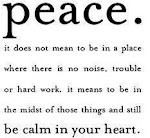
Music (noun) Origins of the word are found all over Europe, dating back to the 13th century. One definition is: the science or art of ordering tones or sounds in succession, in combination, and in temporal relationships to produce a composition having unity and continuity. Another is: the vocal, instrumental, or mechanical sounds having rhythm, melody, or harmony.
Keeping in mind, I grew up in the Presbyterian church I have noticed Presbyterians like to think of music as a response which engages the whole self in prayer.
According to the Presbyterian Book of Order, “music can unite the faithful in common prayer wherever they gather for worship”. Outside of church the youth will sing praises and play music for the Lord at camps and retreats; thus creating a bond between each other and God. Many people of all ages will attend concerts and feel uplifted by the wondrous sounds made by those have been entrusted with such gifts.
Also according to the Book of Order, the primary role of the choir and other musicians is to lead the congregation in the singing of prayers. Instrumental music is considered a form of prayer since words are not essential for praying; God listens to one’s heart.
 My church has been blessed with a very talented and gifted man who is the Director of Music and is considered a special member of my church family. Make sure you take some time to get to know the Director or Minister of Music in your church.
My church has been blessed with a very talented and gifted man who is the Director of Music and is considered a special member of my church family. Make sure you take some time to get to know the Director or Minister of Music in your church.The music played during the service is carefully chosen. It is not a cover for silence, it is not for entertainment. Close your eyes the next time you listen to the choir sing or instruments play. Feel the music. Let the melody slip into your ears, dawdle in your mind, and touch your heart; let your toes tap; let your fingers strum your knee.
Let the Holy Spirit fill you.









No comments:
Post a Comment